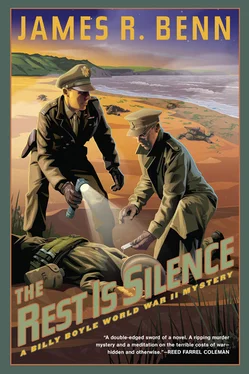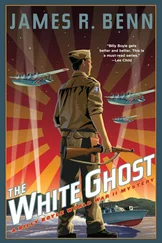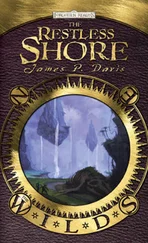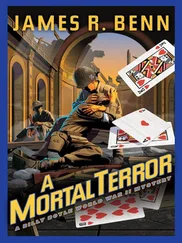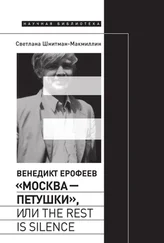James Benn - The Rest Is Silence
Здесь есть возможность читать онлайн «James Benn - The Rest Is Silence» весь текст электронной книги совершенно бесплатно (целиком полную версию без сокращений). В некоторых случаях можно слушать аудио, скачать через торрент в формате fb2 и присутствует краткое содержание. Год выпуска: 2014, ISBN: 2014, Издательство: Random House Publisher Services, Жанр: Шпионский детектив, на английском языке. Описание произведения, (предисловие) а так же отзывы посетителей доступны на портале библиотеки ЛибКат.
- Название:The Rest Is Silence
- Автор:
- Издательство:Random House Publisher Services
- Жанр:
- Год:2014
- ISBN:978-1-61695-267-9
- Рейтинг книги:3 / 5. Голосов: 1
-
Избранное:Добавить в избранное
- Отзывы:
-
Ваша оценка:
- 60
- 1
- 2
- 3
- 4
- 5
The Rest Is Silence: краткое содержание, описание и аннотация
Предлагаем к чтению аннотацию, описание, краткое содержание или предисловие (зависит от того, что написал сам автор книги «The Rest Is Silence»). Если вы не нашли необходимую информацию о книге — напишите в комментариях, мы постараемся отыскать её.
The Rest Is Silence — читать онлайн бесплатно полную книгу (весь текст) целиком
Ниже представлен текст книги, разбитый по страницам. Система сохранения места последней прочитанной страницы, позволяет с удобством читать онлайн бесплатно книгу «The Rest Is Silence», без необходимости каждый раз заново искать на чём Вы остановились. Поставьте закладку, и сможете в любой момент перейти на страницу, на которой закончили чтение.
Интервал:
Закладка:
“Sorry, Colonel,” I said. “I was in the middle of being bamboozled by an old lady.”
“Lieutenant Kazimierz was filling me in on your stay. Not too shabby, Boyle,” Harding said, surveying the walnut paneling hung with oil paintings, the gleaming polished floors, and the high staircase. Harding was trim and fit, a West Pointer who’d served in the last war and stayed on for another go at the Germans. Not one of the gum-chewing rowdy Yanks. Lady Pemberton would approve. His close-cropped hair was flecked with grey at the temples, his face was pale, and there were dark circles under his eyes. The look of a D-Day planner.
“They invited us to stay as long as we wanted,” I said, a bit on the defensive.
“That’s good,” Harding said. “With maneuvers coming up, every hotel and inn within miles is jammed with top brass. Generals and admirals are a dime a dozen up and down the coast. How are you feeling, Boyle?”
“A bit sore, but healing up,” I said.
“Colonel Harding?” We turned to see Peter headed for the door, carrying his painting gear.
“Lieutenant Wiley, isn’t it?” Harding said. “I see they finally let you out to do some painting.”
“You know each other?” I said, surprised that this map-making lieutenant would know an SHAEF colonel.
“Obviously,” Harding said. “Don’t let me keep you, Lieutenant. The sun is shining.” He stepped aside, and Wiley made for the great outdoors.
“How do you know Peter?” I asked.
“By being involved in top-secret business,” Harding said, closing off that line of discussion. “I’ve come from another briefing in Dartmouth. They’re trying the live-fire exercise again tomorrow at Slapton Sands, to make sure they’ve got things worked out.”
“Don’t tell me we’re going back there,” I said. “Sir.”
“Today, not tomorrow, Boyle. Inspector Grange said he’d had reports of civilians in the area. He sent several teams out to search early this morning. They didn’t find anyone, but we need to lend a hand. Take your Constable Quick and patrol the area this afternoon. Any civilians you find, take them into custody.”
“Will do, Colonel,” I said, happy for a daylight ride in the country rather than an early-morning bombardment.
“Good. I’ll be at Greenway House, outside of Torquay by eighteen hundred hours. Report to me there. Lieutenant Wiley can give you directions.”
As Harding drove off, we strolled over to where Peter had set up his easel. He had a view of the house and grounds, sunlight dancing off the windows and giving the old oak trees a warm, green glow.
“So you work with Colonel Harding?” I said as nonchalantly as I could while Peter laid out his paints. I hoped for some indication as to what they were involved in, being snoopy on general principles.
“He’d have to tell you about that, Billy. I’m only a lowly lieutenant who’s been told to keep his mouth shut. Sorry.”
“Don’t mind Billy,” Kaz said, studying the contents of his paint box. “He can’t help asking questions that don’t concern him. You use watercolors?”
“It’s what the navy gave me to work with, and I do like the effect. Say, can I ask a favor?”
“Shoot,” I said.
“I want to go on one of the exercises, and go ashore on one of the landing craft. The navy won’t let me, but I thought if you asked Colonel Harding, he could make it happen.”
“Why didn’t you ask him when he was here?” Kaz said.
“To be honest, he makes me nervous. I chickened out,” Peter said, smiling in embarrassment.
“Hey, I know the feeling,” I said. “It can’t hurt to ask. We have to meet him at Greenway House tonight. I’ll let you know. You’ll still be here?”
“Yeah, I’ll be here. Thanks, Billy,” Peter said.
“One question,” I said. “Why? Why do you want to ride the waves in a flat-bottomed landing craft along with a bunch of seasick GIs?”
“Perspective,” Peter said, mixing water into his deep blue paint. “It’s all a matter of perspective.”
He wouldn’t say anything else, or even look at us. With deft strokes he began to paint the blue sky over Ashcroft, working in silence, indifferent to our presence, and to the dark clouds rolling in from the north.
CHAPTER SEVENTEEN
We had a passenger on our drive into Dartmouth. Crawford-Roger Crawford, I ought to say, although he was one of those guys who seemed to have been born with only a last name-who was going to take his small fishing boat out for plaice, which was British for “flounder.”
“The plaice come into the shallows to rest for the night,” he said from the backseat, one hand steadying his bicycle. “The tides are perfect today. They’ll bring me out and carry me back, like catching the train.”
“It must be hard to get petrol,” Kaz said.
“There’s an allotment for fishermen, and the fish isn’t rationed,” Crawford said. “Helps with the prices. Otherwise, there’d be little incentive for any sane man to venture offshore. I sell what I can in Dartmouth and bring what’s left to Ashcroft. If I work with the tides, I have more than enough fuel. I was lucky to find a spot near town, so I don’t have to motor down Bow Creek from Ashcroft. It’s not far, but it saves on petrol to set off with the tide in the estuary.”
“You fished full-time before the war?” I asked.
“I did. But when I lost my home to the government, along with my mooring, it was a bad time to sell a boat. Not many people wanted to go out into the Channel with the Germans bombing everything that floated, and fuel was hard to come by. Didn’t get much for it. Bought this little one so I could go out on the water, but I have to stay close to shore.”
“Ashcroft seems like a decent place to work,” I said, knowing that Massachusetts men with fishing in their blood would hate the idea of working on dry land, and as a hired hand at that.
“It’s not bad,” Crawford said, in a low voice that summoned up the minimum commitment necessary not to insult the family that employed him.
“But not like being your own boss,” I said.
“No, thanks to your lot,” Crawford said. “Both of you. It was the British army that took my property and the Americans who burned it.” His voice was bitter, his anger seething in a harsh, clipped tone. I didn’t have to see his face to know his jaw was clenched.
“Hey, don’t blame us,” I said. “We’re just two guys giving you a lift.”
“It wasn’t right,” Crawford said, ignoring my protestation. “Especially setting fire to my house. Yanks did that.”
“How do you know?” I asked, downshifting as we climbed a hill. A column of GIs double-timed along the road, packs bouncing on their backs and rifles held high.
“You have to watch things,” Crawford said. “There are ways. I saw what they did. Threw a thermite grenade through a window, playing like they was real soldiers.”
“You snuck into the restricted area to check your house?” I asked.
“Nothing to it, if you’re careful,” Crawford said. “I crawled on my belly through no-man’s-land in the Great War. Now that was a challenge. I was a sapper, setting charges to blow barbed wire or laying mines and booby-traps in front of our positions in the black night. A few roadblocks manned by coppers and green Yanks don’t count for much after that. There’s paths through the woods only us locals know about.”
“Where was your house?” I asked.
“Dunstone. A little village inland from Slapton Sands. A nice little place until the American army showed up.”
“I am sorry that happened, Crawford,” Kaz said. “Apparently some soldiers thought the houses were all slated for destruction. I doubt it was willful.”
Читать дальшеИнтервал:
Закладка:
Похожие книги на «The Rest Is Silence»
Представляем Вашему вниманию похожие книги на «The Rest Is Silence» списком для выбора. Мы отобрали схожую по названию и смыслу литературу в надежде предоставить читателям больше вариантов отыскать новые, интересные, ещё непрочитанные произведения.
Обсуждение, отзывы о книге «The Rest Is Silence» и просто собственные мнения читателей. Оставьте ваши комментарии, напишите, что Вы думаете о произведении, его смысле или главных героях. Укажите что конкретно понравилось, а что нет, и почему Вы так считаете.
